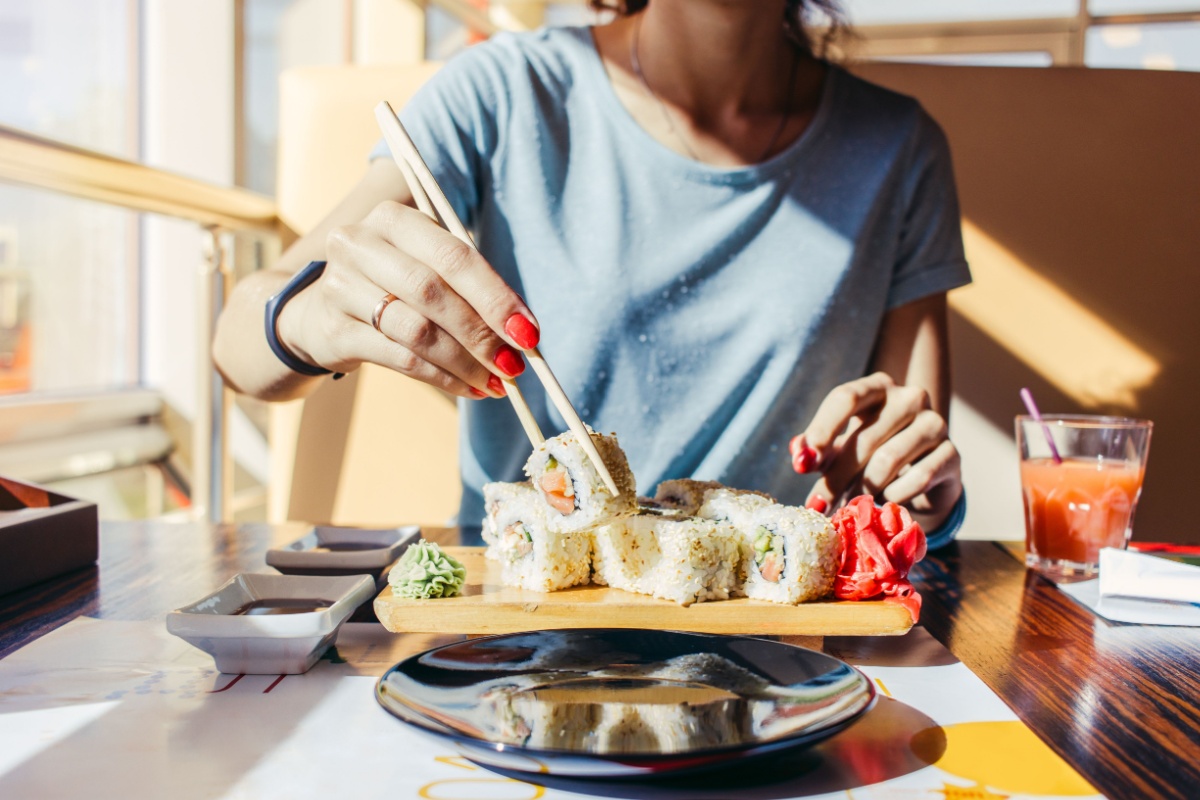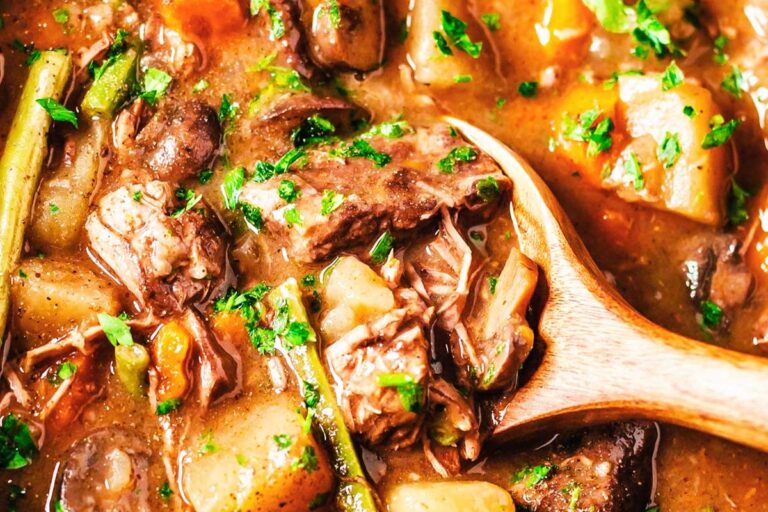15 Foods Most Likely to Cause Food Poisoning (and Why You Should Be Careful)
Food poisoning can strike quickly, making you feel sick from contaminated food or drink. While it can happen with almost any food, some foods are particularly high-risk due to how they’re handled, stored, or grown.
Understanding these high-risk foods, from raw meats to leafy greens, can help you stay safe. Here’s a list of 15 foods most likely to cause food poisoning and what to watch for.
Raw Chicken and Poultry
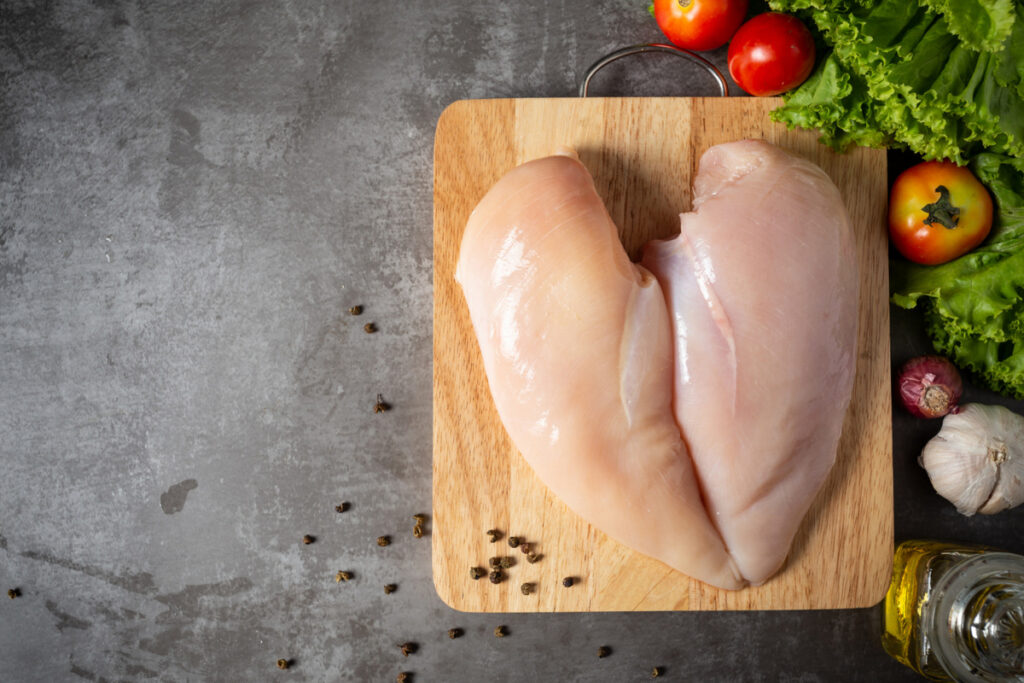
Raw chicken is one of the most common sources of foodborne illness. Bacteria like Salmonella and Campylobacter thrive in raw poultry and can cause severe stomach cramps, vomiting, and diarrhea if not fully cooked. Even a small amount of raw chicken juice can contaminate surfaces and other foods.
To avoid getting sick, cook poultry to an internal temperature of at least 165°F. Also, wash hands and kitchen tools after handling raw chicken to avoid cross-contamination. Taking these steps can reduce the risk of food poisoning.
Raw or Undercooked Eggs

Eggs are nutritious, but they’re also a common source of Salmonella, especially if eaten raw or undercooked. Raw eggs can be found in certain foods like homemade mayo, Caesar dressing, and raw cookie dough. Cooking eggs until the yolks and whites are firm helps kill harmful bacteria.
Always use pasteurized eggs if a recipe calls for raw eggs, such as in certain sauces or desserts. Storing eggs in the fridge also helps reduce bacterial growth. Handling eggs safely can lower your risk of illness.
Unwashed Leafy Greens
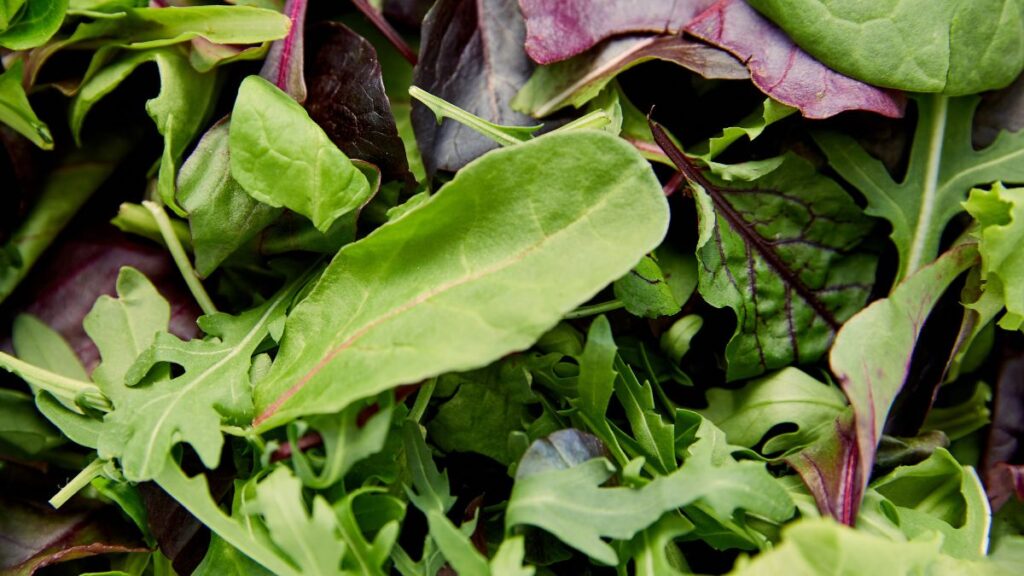
Leafy greens like spinach, lettuce, and kale are highly nutritious but can carry bacteria like E. coli or Listeria. Contamination often happens during growing or processing. Since these greens are usually eaten raw, any bacteria present won’t be killed by cooking.
Rinse leafy greens thoroughly under cold water before eating to wash away bacteria and dirt. Avoid bagged salads that look slimy or wilted, as this can indicate spoilage. Storing greens properly and rinsing them well helps prevent foodborne illness.
Raw or Undercooked Ground Beef
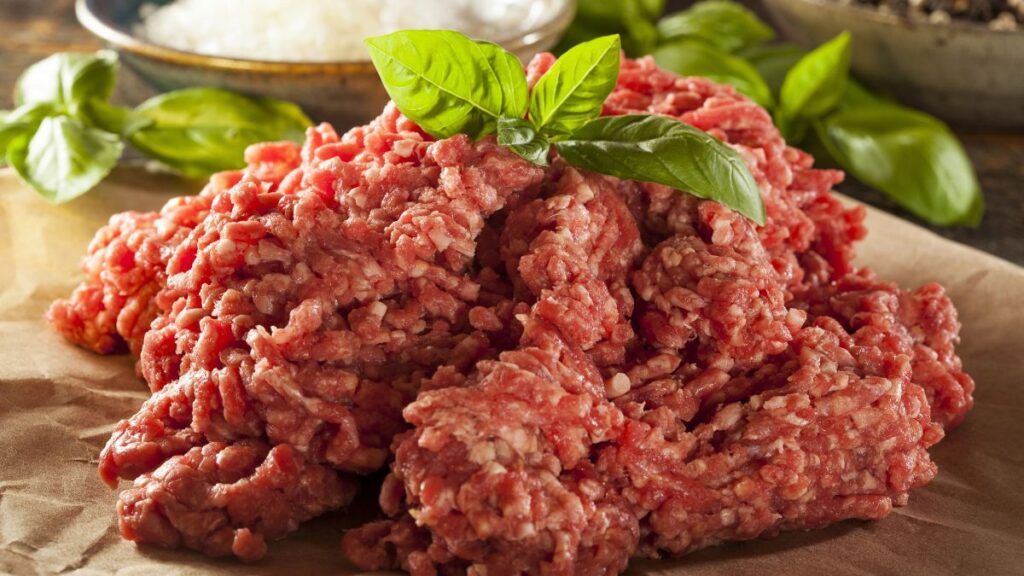
Ground beef has a high risk of contamination because harmful bacteria can spread during grinding. E. coli and Salmonella are common culprits in raw ground beef, and they can lead to severe digestive issues. Cooking ground beef to an internal temperature of 160°F helps kill these bacteria.
Avoid eating rare or pink ground beef in burgers or meatloaf, as it may contain dangerous pathogens. Always wash your hands and kitchen surfaces after handling raw ground beef. Being cautious with ground beef can reduce your risk of foodborne illness.
Shellfish, Especially Raw Oysters
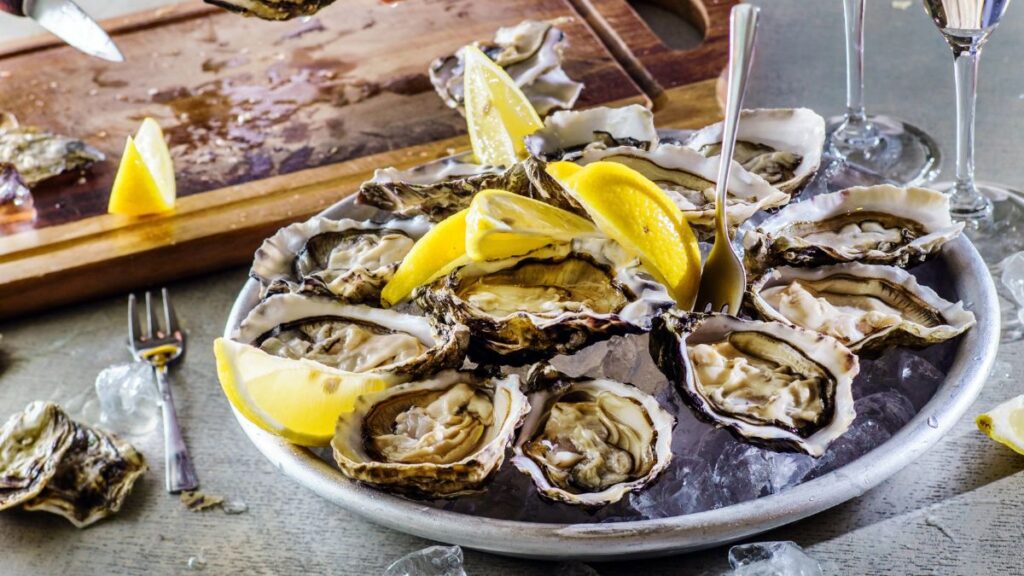
Shellfish, especially raw oysters, can carry harmful viruses and bacteria like Vibrio and norovirus. These pathogens thrive in warm waters, making raw shellfish risky, especially in warmer months.
Cooking shellfish thoroughly kills these bacteria, making it safer to eat. Avoid eating raw oysters, as the risk of illness is higher. Some bacteria in shellfish can survive despite careful handling, so only purchase shellfish from reputable sources. Cooking and sourcing carefully can help prevent food poisoning.
Unpasteurized Milk and Dairy Products

Unpasteurized, or “raw,” milk and other dairy products haven’t been heated to kill harmful bacteria. This makes them more likely to carry Listeria, Salmonella, and E. coli, which can cause severe illness. While raw milk enthusiasts claim health benefits, the risks are significant, especially for young children, pregnant women, and older adults.
Consuming pasteurized dairy products greatly reduces the risk of foodborne illness. Always check labels to ensure dairy products are pasteurized. Choosing pasteurized milk is a safer option for most people.
Uncooked Sprouts
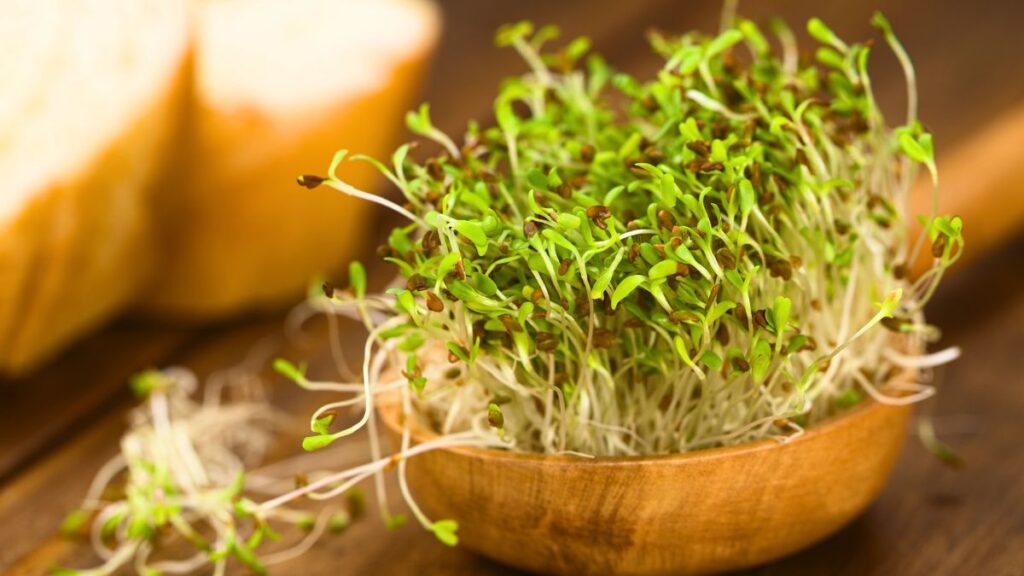
Sprouts, like alfalfa, mung bean, or clover sprouts, are often eaten raw in salads and sandwiches. However, their warm, moist growing conditions make them a prime breeding ground for bacteria like E. coli and Salmonella. If sprouts are contaminated, washing won’t completely remove the bacteria, so cooking is the best way to make them safe.
Pregnant women, children, and older adults should avoid raw sprouts due to the risk of severe illness. Cook sprouts if you’re going to eat them to lower your risk. Buying from reputable sources can also reduce contamination chances.
Cantaloupe and Other Melons
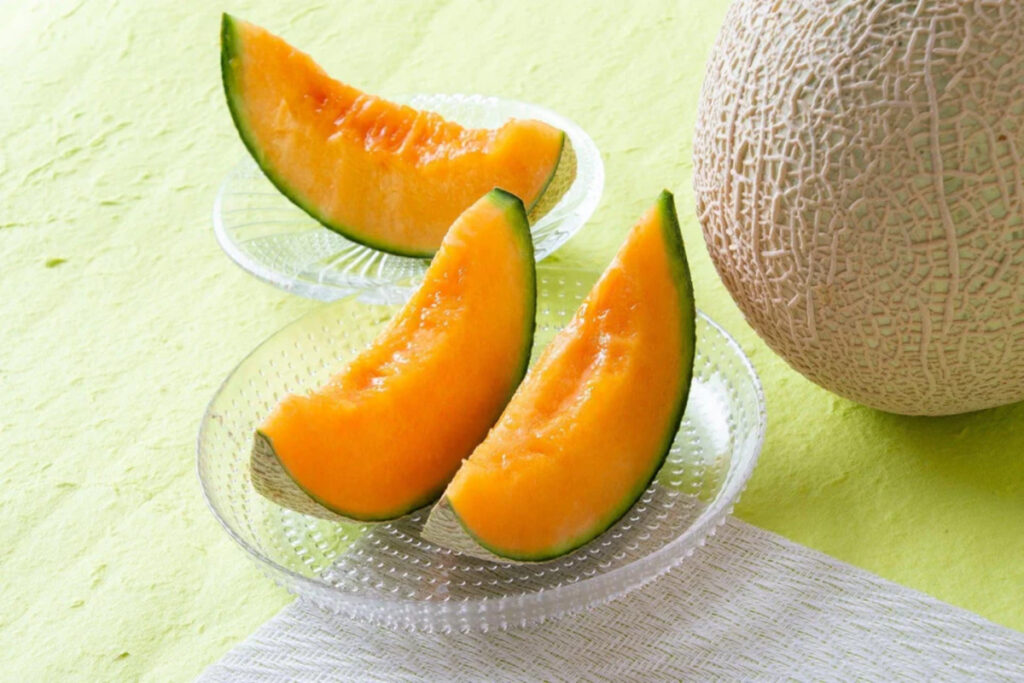
Cantaloupes and other melons can carry harmful bacteria on their rinds, like Salmonella or Listeria. Since they grow on the ground, they can come into contact with soil, water, and animals.
Bacteria on the rind can transfer to the flesh when slicing, especially if not washed first. Rinse melons under cold water and scrub their surface before cutting to reduce contamination. Store cut melon in the fridge and eat it within a few days. Proper handling of melons can help you avoid illness.
Prepackaged Deli Meats

Deli meats, like ham, turkey, or salami, can be contaminated with Listeria even after processing. This bacteria can grow at refrigerator temperatures, making it tricky to eliminate. Pregnant women, older adults, and those with weakened immune systems should be especially cautious with deli meats.
Heating deli meats until steaming hot can help kill bacteria, making them safer. Avoid deli meats that are past their use-by date, and store them in the fridge. Handling deli meats carefully is essential for food safety.
Soft Cheeses Made from Unpasteurized Milk

Soft cheeses, like brie, camembert, and queso fresco, are at higher risk of carrying Listeria if made from unpasteurized milk. Listeria can be particularly harmful to pregnant women and people with weakened immune systems. Opt for soft cheeses that are labeled “pasteurized” to reduce the risk.
If you’re unsure, it’s safer to skip unpasteurized soft cheeses, especially when pregnant or serving vulnerable guests. Store all cheese in the fridge and consume it within the recommended time frame. Following these tips can help you avoid foodborne illness.
Berries, Especially Raspberries

Berries like raspberries and strawberries are often eaten raw, which can make them risky if they carry bacteria like Salmonella or parasites. Since berries grow close to the ground, they can come into contact with contaminated water or soil.
Wash berries thoroughly under cold water before eating to remove dirt and bacteria. Avoid pre-washed berries that look bruised or overripe, as they’re more likely to harbor bacteria. Store berries in the fridge and eat them within a few days. Proper washing and storage help keep berries safe to eat.
Rice Left at Room Temperature
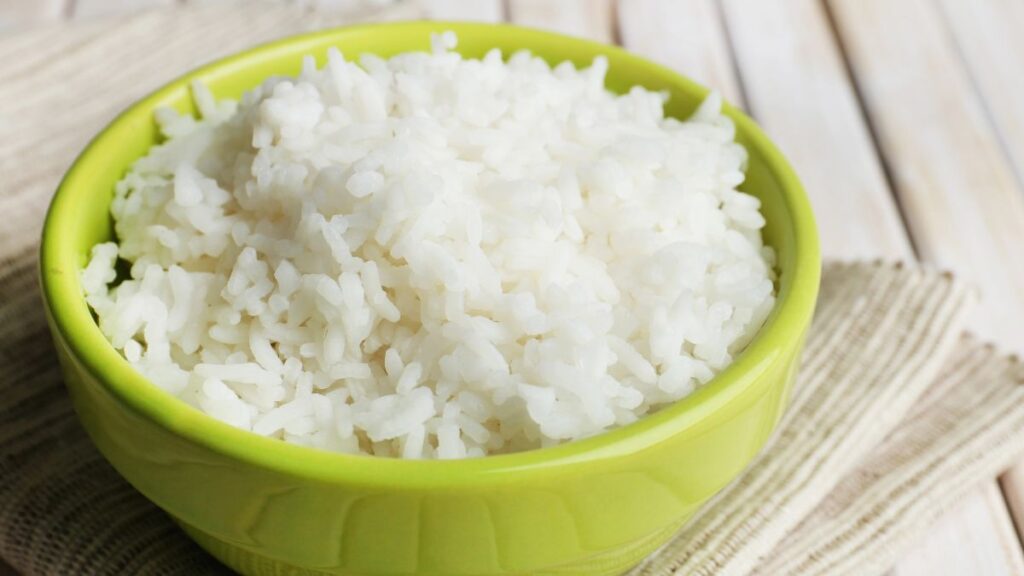
Cooked rice can be a surprising source of foodborne illness if left out at room temperature. Bacillus cereus, a bacteria that can cause vomiting, can grow in rice left out too long. To avoid this, refrigerate cooked rice promptly and reheat thoroughly when ready to eat.
It’s also a good idea to avoid reheating rice more than once. Always store rice in shallow containers to cool it faster. Handling rice with care reduces the risk of bacterial growth.
Potato Salad and Other Mayonnaise-Based Salads
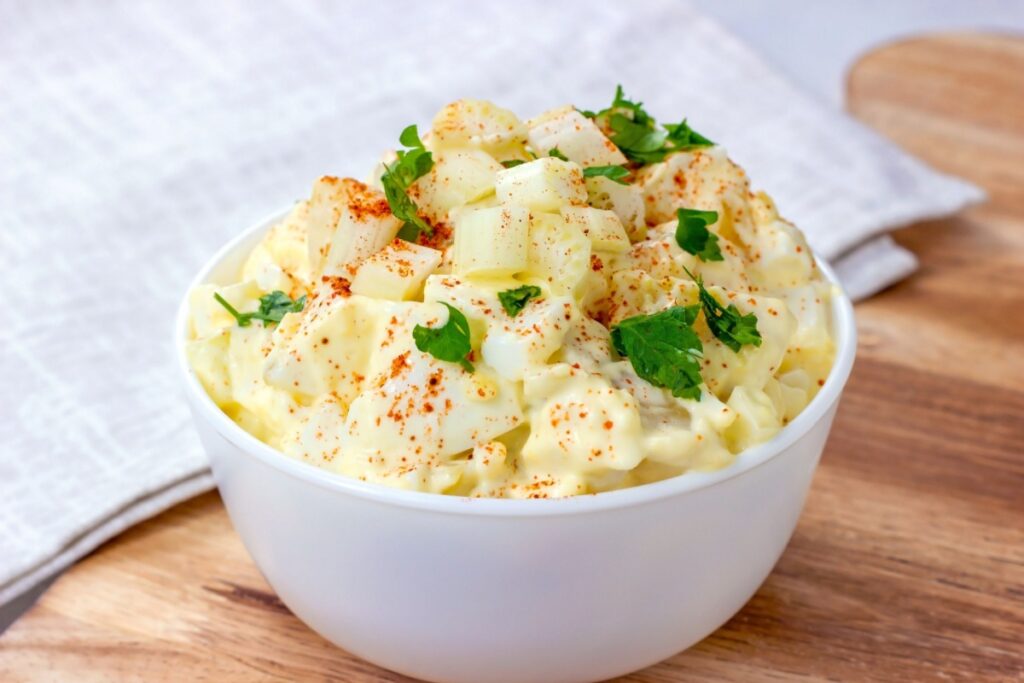
Potato salad, egg salad, and coleslaw are classic foods for gatherings but can cause illness if not handled properly. These dishes are often made with mayonnaise, which can spoil quickly if left out in warm conditions.
Always keep these salads chilled until serving, and don’t leave them at room temperature for more than two hours. When bringing them to a picnic or event, use a cooler with ice packs to keep them cold. Proper storage and serving prevent bacteria from growing. Serving salads safely helps avoid food poisoning.
Raw Flour and Cookie Dough
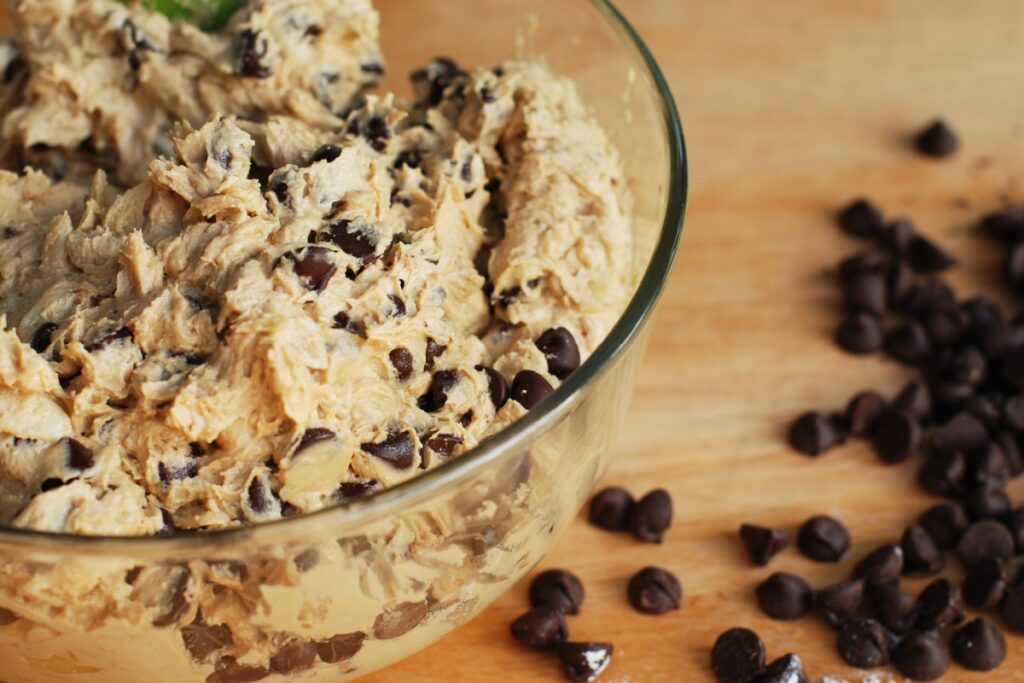
Raw flour might not seem risky, but it can harbor bacteria like E. coli. Eating raw cookie dough, which contains uncooked flour and eggs, is particularly high-risk. Cooking kills these bacteria, so bake dough thoroughly before enjoying it.
If you love cookie dough, consider recipes specifically made to be eaten raw that use pasteurized eggs and heat-treated flour. Avoid eating flour-based products uncooked to stay safe. Cooking or choosing safe recipes is best when it comes to flour.
Sushi and Sashimi
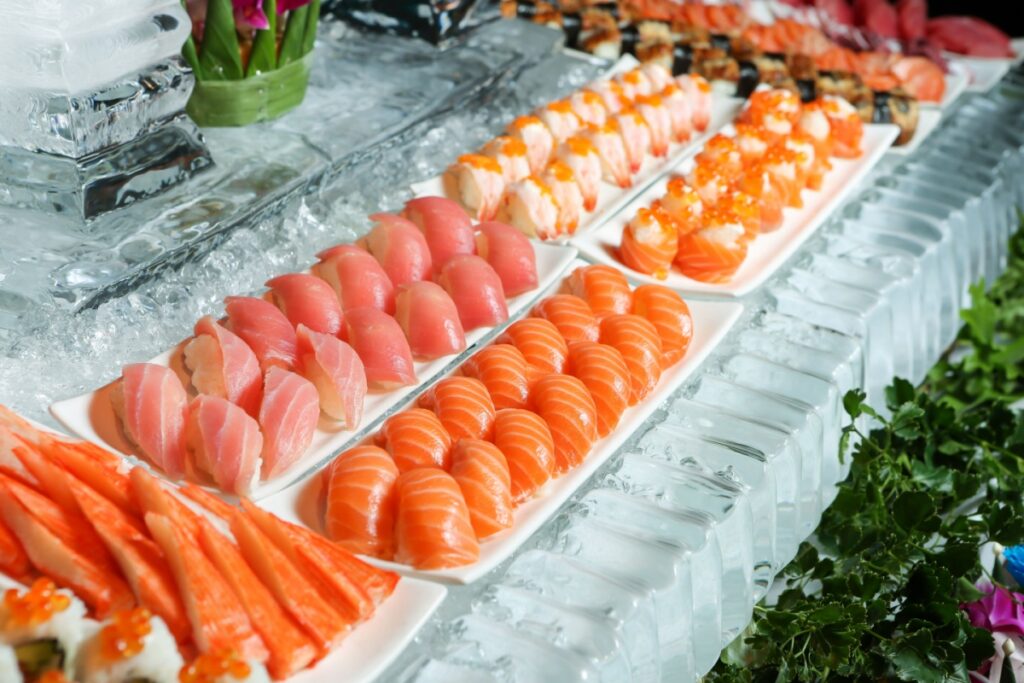
Sushi and sashimi are popular for their fresh flavors, but eating raw fish carries a risk of parasites and bacteria. Pathogens like Vibrio can thrive in raw or undercooked seafood, causing digestive problems and other issues. Ensure you’re eating sushi from reputable places that follow strict food safety guidelines.
Look for restaurants that maintain proper refrigeration and quality control to reduce the risk. Raw fish should be avoided by pregnant women and those with weakened immune systems. Being cautious with sushi can help you enjoy it safely.
15 Places Where You’re Expected to Tip—But You Really Don’t Have To

Tipping has become a widespread practice in many industries, with the expectation that you’ll leave a little extra for good service. However, not every situation truly warrants a tip, even if you feel pressured to give one.
15 Places Where You’re Expected to Tip—But You Really Don’t Have To
15 Most Annoying Habits of American Tourists When Dining Abroad

Traveling abroad is an exciting adventure, and dining in new places is a big part of the experience. However, some common behaviors by American tourists can be frustrating for locals and affect the dining experience.
15 Most Annoying Habits of American Tourists When Dining Abroad

